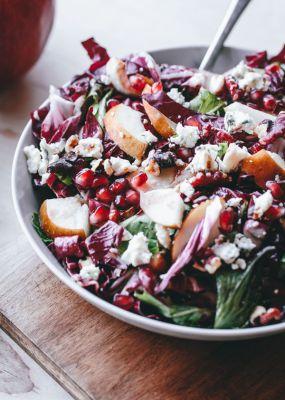Following a plant-based diet is one of the best things that we can do for our health. Not only has a plant-based diet been linked to increased longevity, but it’s also been found to help tackle climate change.
That said, three new studies have come out to show that a plant-based diet can improve a man’s sexual health.
Plant-Based Diets Are Great For Men’s Sexual Health
Study 1: Plant-based eating prevents erectile dysfunction (ED)

322 million men are expected to suffer from erectile dysfunction by 2025. There are several factors that can cause ED, such as stress and medications, and diet can also play a role.
A recent study published in the Journal of Urology set out to examine the link between eating a plant-based diet and erectile dysfunction.
The researchers found an association between a plant-based diet and a reduced risk of having erectile dysfunction.
Study 2: Plant-based eating reduces PSA levels
According to the American Cancer Society, PSA refers to prostate-specific antigen, which is a protein made by cells in the prostate gland (1). High PSA levels can affect prostate health. They can even increase one’s risk of prostate cancer, so it’s important to keep them at a healthy level.
A recently published study in the Journal of Urology found that eating a plant-based diet can help regulate PSA levels. According to the researchers, “There is a significant association between increased consumption of a healthy plant-based diet and lower PSA levels.”
Study 3: Plant-based eating protects against prostate cancer
Prostate cancer is the second most commonly diagnosed cancer, and it’s also the fifth leading cause of cancer among men worldwide (2).
There have been plenty of studies in the past looking at the effects of diet on prostate cancer risk, with many highlighting the protective properties that tomatoes have on prostate health.
Tomatoes are a feature in plant-based diets. As such, it appears that these diets are exactly what one needs in order to protect themselves from prostate cancer.
A study found in the Journal of Urology featured 47 239 men. The researchers concluded that “data from this prospective study provide supportive evidence that greater consumption of healthful plant-based foods may be associated with a lower risk of total and fatal prostate cancer among younger men.”
Conclusion
“These three studies show that dietary interventions can make positive impacts for overall health, as well as specific urologic conditions faced by millions of men.
Increased consumption of a healthy plant-based diet has significant benefits for urologic and sexual health.” – Dr. Stacy Loeb, study author.
Dr. Loeb added that plant-based diets should be recommended for men who are concerned about the risks of prostate cancer.
Want to know more?
While cancers affect both males and females, the cancer mortality rate is higher among men (1). So, why are more men dying from cancer?
References
Kresch, E., Blachman-Braun, R., Nackeeran, S., Kuchakulla, M. and Ramasamy, R., (2021). Journal of Urology . https://doi.org/10.1097/JU.0000000000002009.05
Loeb, S., Fu, B., & Bauer, S. (2021). Journal of Urology. https://doi.org/10.1097/JU.0000000000002036.06
Mouzannar, A., Kuchakulla, M., Blachman Braun, R., et ak. (2021). Journal of Urology. https://doi.org/10.1097/JU.0000000000002109.08






![women [longevity live]](https://longevitylive.com/wp-content/uploads/2020/01/photo-of-women-walking-down-the-street-1116984-100x100.jpg)










